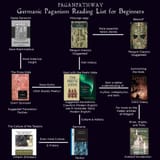>>24682687
As for the how, first it gained power in the Roman Empire by being an ideology of salvation for the downcast - remember that Rome was the original globohomo empire and its society was full of rootless slaves and urban poor. Like all powerful organisations it began to rot as it increasingly removed upward mobility and local communitarian relations. Then by the time of late Rome there were civil wars left and right and emperors needed to shore up a power base. Constantine was the first in a long line of rulers to try and exploit christianity to shore up his power base. He also did the same thing to the Mithraic mystery cult that was widespread across the empire especially in the army, and many christian rituals to the present day blend mithraic rituals into them. He made christianity the official religion of the entire empire, and it wouldn't be long before christian rulers enacted laws of destruction against native religions, and there were also many riots, sacks, and local power struggles (e.g. in Alexandria) in the final days of the roman empire.
Once Rome was gone the prestige of rome hung around, and many kings wanted it to boost their own egos. The church exploited this cultural power along with a monopoly on classical education to appeal to many kings that essentially cared about nothing more than their wealth and their egos. At the same time they sent out missionaries to try to convert nations, and these missionaries often straight up lied about what christianity was (see the Heliand as an example of these misrepresentations). Once they gathered a few of these kings it was spread via politics even harder, including violently - subjugation of their own people, forced conversion as treaty stipulations, and crusades. Christfags will lie and say crusades were only about defending Europe from islam, but there were crusades and massacres against finns, wends, lithuanians, saxons, and even heterodox christians in southern france. Also the slave trade of non-christians was approved.
So these measures led to domination of the governmental and educated classes by the church. But laymen often kept up traditions, not typically as rebellion but simply because they didn't know it wasn't christian. Normies of all ages do what they've always done, they don't think about it. To this day many customs in Europe continue, but the average person doesn't know that dancing around a maypole is a native fertility ritual.
This was still the case in the early modern period, although the extreme protestant vs catholic warring no doubt destroyed many important manuscripts and artifacts. The rise of puritanism attempted to destroy even more, but the only place it truly took root is in America.
When the protestant vs catholic warring ended secularism and scholarship started to rise, and we mostly get preservation again. But at the same time the industrial revolution happened, which destroyed traditional towns and lifestyles and drove urbanisation.
[2/2]
